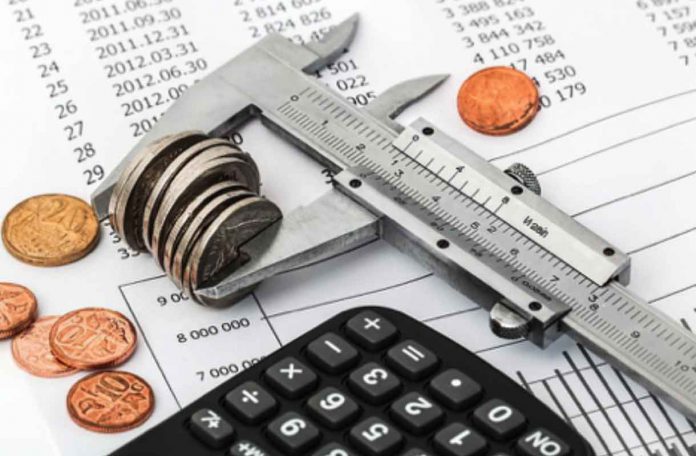By definition, bankruptcy is a legal process that helps debtors climb out of compromising financial situations. Generally speaking, an individual will file bankruptcy when overwhelmed by all-consuming amounts of debt as a means to overcome their current financial circumstances.
Unfortunately, filing for bankruptcy will negatively impact your credit score and force you to hand over your properties and other valuables. With these negative consequences in mind, never dive headfirst into a bankruptcy filing. By preparing accordingly, you can mitigate damage to your credit score and preserve your financial integrity.
If you are thinking about filing for bankruptcy, you should only do so after reviewing the ten tips listed below. This information provided by WH Law will guide you through the complicated bankruptcy process to ensure you don’t financially impair your household.
Consider bankruptcy alternatives
Bankruptcy should never be the first resort for debt relief. Consider alternative debt relief solutions before bankruptcy. Debt consolidation and credit counseling options offer financial assistance to households drowning in debt with less drastic consequences. Only resort to bankruptcy after exhausting all of your other options.
Remember, bankruptcy isn’t a quick or easy fix
Despite popular misconceptions, bankruptcy isn’t the quickest debt relief solution available. Chapter 7 bankruptcy can take six months or more to complete, while Chapter 13 bankruptcy can take considerably longer. Many people assume they can file bankruptcy and resolve their financial situation in a matter of a few weeks, which certainly isn’t the case.
Should you choose to file for bankruptcy, prepare yourself for a long, arduous journey packed with hours of paperwork.
Familiarize yourself with the two types of bankruptcy
Chapter 7 and Chapter 13 are the two types of bankruptcy a person can file. Chapter 7 erases all debts, while Chapter 13 enacts a repayment plan. Researching each kind of bankruptcy in-depth is a critical step you must take before diving headfirst into the process. Talk to an attorney to ease the tensions you might experience when filing for bankruptcy. For most inexperienced individuals, the bankruptcy process can pose a significant challenge. Consult a professional if you feel incapable of filing bankruptcy on your own.
Bankruptcy is complicated
Although DIY bankruptcy is possible, having a legal expert on your side ensures the best results. Bankruptcy is complicated and potentially tedious. It also requires a level of legal knowledge the average person usually lacks. Without legal expertise, navigating through the bankruptcy process can overwhelm the average debtor.
Honesty is the best policy
Dishonesty during the bankruptcy process can result in jail time, at worst. At best, the courts will dismiss your bankruptcy case, leaving you liable for your debts once again. Neither outcome is considered ideal.
Not surprisingly, filing bankruptcy is stressful and expensive. A single white lie can render the time and resources you’ve invested a waste. Don’t risk your freedom or lose the progress you’ve made because you were dishonest. Maintain 100 percent transparency from start to finish.
Bankruptcy is public knowledge
Most individuals deeply value their sense of privacy, especially where finances are concerned. Before filing, acknowledge that the public can access all documents related to the bankruptcy case, due to its public record status. Anyone interested can see when and if you filed for bankruptcy. Unfortunately, there are no exceptions to this rule, leaving you exposed to invasive lines of questioning from peers, colleagues, or family members.
Filing bankruptcy negatively affects your credit
After filing bankruptcy, expect it to impact your credit score and credit report immediately. Generally speaking, you can anticipate that your score will decrease by 160 to 220 points. A bankruptcy filing can also stay on your credit for up to 10-years in many cases.
Unfortunately, improving your credit score may not be simple, at least for the first few years after you’ve filed. You’ll eventually be able to restore your credit. Until then, qualifying for a home or car loan will prove nearly impossible. If you do receive a loan, expect much higher interest rates.
Bankruptcy eligibility
Anyone considering filing bankruptcy must first complete a means test to learn if they qualify. By definition, a means test is an analysis of your finances, conducted by an independent trustee to ensure you meet bankruptcy qualifications. Note that these qualifications vary according to the type of bankruptcy you file.
Credit counseling pre-court
Credit counseling is a critical step in filing for bankruptcy. Counseling teaches individuals how to manage their finances properly, so they can avoid future financial hardships that might’ve landed them in hot water in the first place.
At your own cost, you’ll need to complete credit counseling within 180-days of the court hearing. Credit counseling isn’t optional. A judge will not hear any case if the filer has not completed credit counseling within this time frame. With this stipulation in mind, you’ll need to plan accordingly.
Hire an attorney
You can file for Chapter 7 or Chapter 13 bankruptcy without an attorney. However, doing so may cause more grief than it’s worth. In most cases, it’s much easier to file bankruptcy with an attorney by your side every step of the way.
Because bankruptcy involves many complex laws, an attorney will ensure that you file the right type of bankruptcy and receive the best outcome in the shortest amount of time possible. While it may sound appealing to avoid incurring legal fees, common mistakes can cost a debtor thousands of dollars in lost properties.
Conclusion
Protect your assets by consulting with an attorney as soon as possible. Whether you decide to recruit legal counsel or not, you should always take the bankruptcy process seriously.








